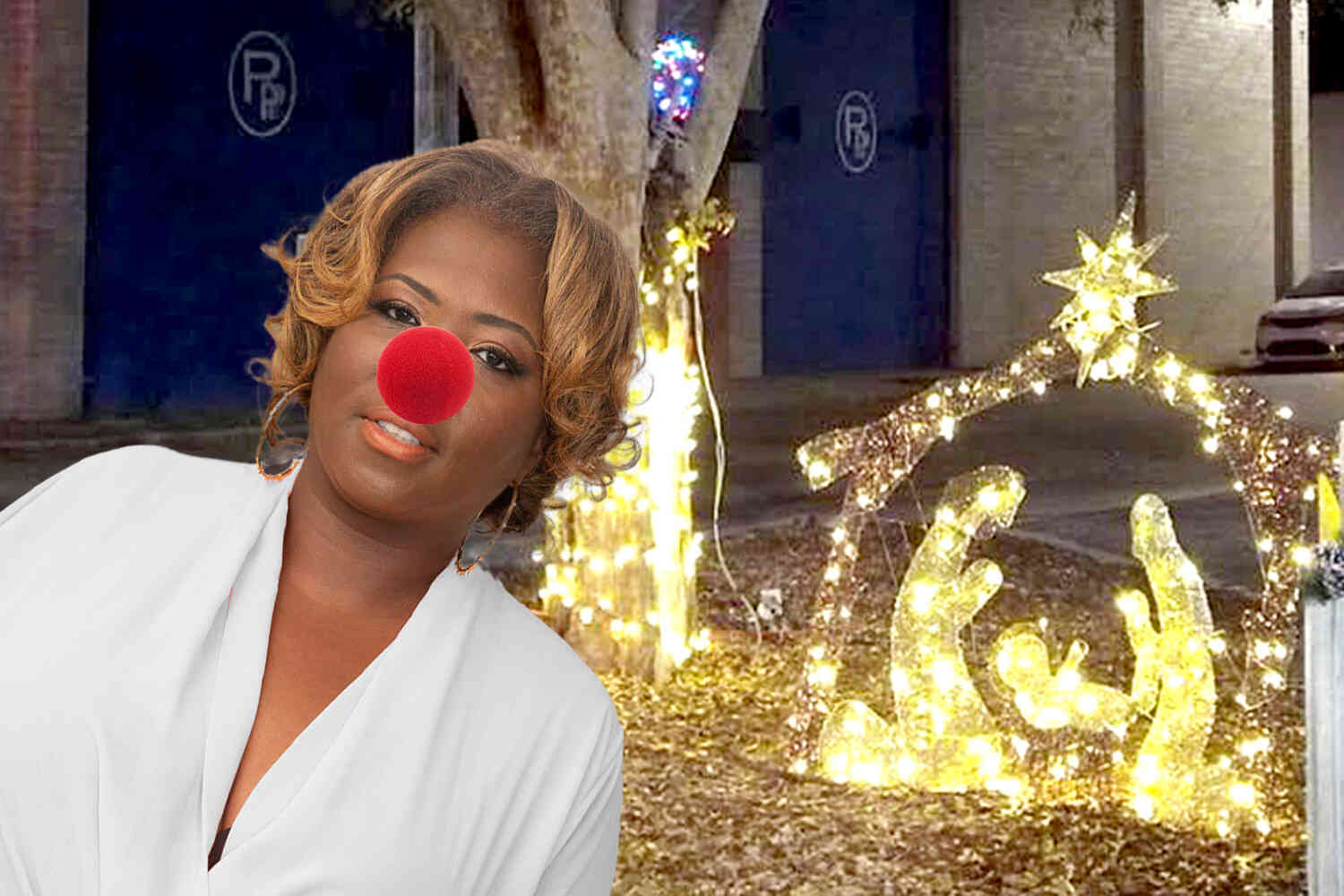In today's day and age, anyone can be anything. Boys can be girls, girls can be boys, they can be neither, or, apparently, they can also be a mermaid.
(And if you disagree, then you're a bigot.)
The Associated Press just did an entire puff piece on the "growing mermaid subculture" and it's actually pretty disturbing.
It's also much more aligned with today's intersectional culture than you'd imagine.
There was a pivotal moment in Queen Pangke Tabora's life that eclipsed all others: It was the moment, she says, when she first slid her legs into a mermaid tail.
For the transgender Filipina woman approaching middle age, seeing her legs encased in vibrant, scaly-looking neoprene three years ago was the realization of a childhood dream. And it marked the beginning of her immersion into a watery world where she would find acceptance. The former insurance company worker described the experience of gliding under water, half-human and half-fish, as "meditation in motion."
"The feeling was mermai-zing," Tabora said one recent morning while lounging in a fiery red tail on a rocky beach south of Manila, where she now teaches mermaiding and freediving full-time. "The world outside is really noisy and you will find peace under water. … It's a good skill in the real world, especially during the pandemic."
So this "transgender" Filipina person is also really into pretending to be a mermaid. It's almost like once you can pretend to be another gender, it's no big deal to pretend to be a mythical species.
This dude's entire life now revolves around "teaching" mermaiding to other people.
But okay, this is just one weird guy. There have always been some weird people, right?

Oh.
There's more?
Across the world, there are thousands more merfolk like her — at its simplest, humans of all shapes, genders and backgrounds who enjoy dressing up as mermaids. In recent years, a growing number have gleefully flocked to mermaid conventions and competitions, formed local groups called "pods," launched mermaid magazines and poured their savings into a multimillion-dollar mermaid tail industry.
On a planet plagued by war, disease and social upheaval, many merfolk have found life in the water a refuge. Perhaps Sebastian, the ornery crab in the 1989 film "The Little Mermaid," said it best in his warning to land-loving mermaid Ariel: "The human world, it's a mess. Life under the sea is better than anything they got up there!"
Away from the critics and chaos of life on land, mer-world is the kinder, gentler and more joyful alternative to the real world. It is also a world, merfolk say, where you can be whoever and whatever you want.
There are THOUSANDS of these people?
They're like a real-life Captain Nemo from 20,000 Leagues Under the Sea. Only crazier.

And, of course, the mermaiding subculture "intersects" largely with other "oppressed" groups. Particularly transgendered individuals. But there are other intersectional classes who are making their new home under the sea.
That openness attracts some transgender people who empathize with Ariel's agony of being trapped in a body that feels wrong. It is also inspiring to merfolk like Che Monique, the Washington, D.C.-based founder of the Society of Fat Mermaids, which promotes body-positive mermaiding.
"I'm a 300-pound Black mermaid in America over 35, and hopefully that tells somebody they can do whatever they want to do," says Monique, whose group sells shirts that read ‘Fat mermaids make waves' and ‘Gender is fluid under the sea.' "Sure, on the one hand it is really silly, but I've watched it change people's lives."
After all, the ocean is vast, she notes, and most of the planet is covered in water. So why not dive in?
"I think there's room under the sea for all of us," Monique says.
Usually, when people hear a message of "you can be whatever you want to be" coming from this nation's capital, people are referring to being president, or a senator.
But no, Che Monique wants you to know that you can also be an over 35, 300-pound, black mermaid.
Every small child's aspiration!
We are in deep trouble, people.
Reminder, this story appeared in the Associated Press and it is actually celebrating this "lifestyle."
Mermaiding can give you the chance to become someone different. But it can also give you the chance to become more like yourself.
Mermaid Nymphia grew up as a male-presenting child of the 1990s, and gender norms dashed her dream of dressing up as her idol, Ariel. Years later, as an adult transgender woman, her dream was finally realized when her mother helped her sew her first mermaid costume.
Nymphia would later discover a diverse community of like-minded mers online, and, on the suggestion of her mother, turned her lifelong obsession into a profession. The Los Angeles-based Nymphia has since appeared at everything from children's parties to corporate events, and in 2019 served as a trans merfolk ambassador at the California Mermaid Convention.
The transformation theme of fish to human in "The Little Mermaid" is inspiring to a subsection of the LGBTQ community, Nymphia says.
A "male-presenting child," aka a boy, was sad that he couldn't dress up as Ariel from the Little Mermaid. So now, as an adult, he thinks he's a she and dresses up as a mermaid.
And this is supposed to be a happy ending?
Call me crazy, but this is a tragedy.
P.S. Now check out our latest video 👇









